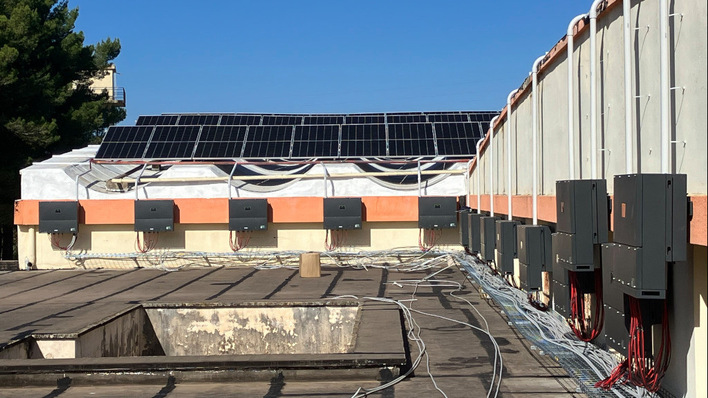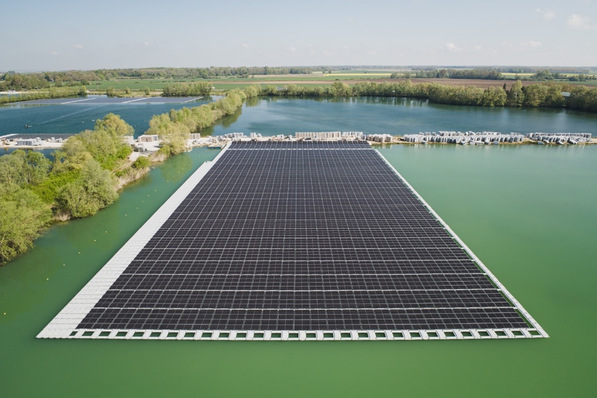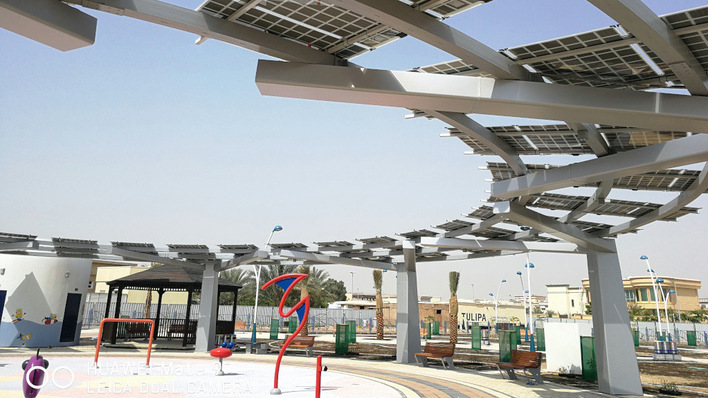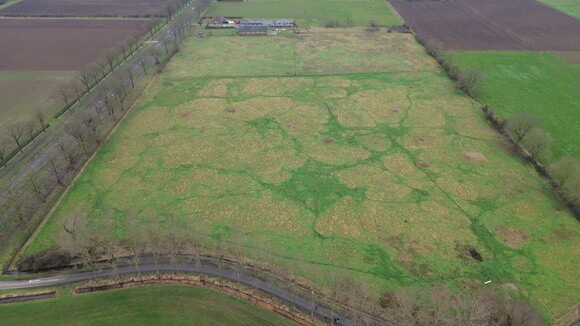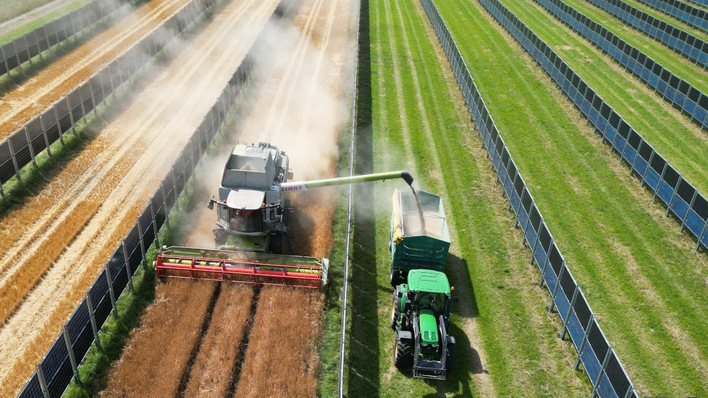BayWa r.e. has also launched Greenberry, an extension project to study the potential for a new 36 MW solar park on the same site.
The permit requests relating to this new solar park will be filed in autumn, following the environmental and technical studies. Following this, the Greenberry extension project will likely commence in 2022, with commissioning planned for 2023.
Clearing and decontamination began in February
Clearing and decontamination of the Blueberry site began in February this year, with a demining team brought in to remove any explosive materials. Remnants of the two hangars at the military base, which ceased operation in 2012, were excavated and donated to the “Les amis de la Martinerie” association, and will be displayed as part of an upcoming public exhibition.
The construction of the southern part of the power plant began in June, followed by the northern one in August. The positioning of 87,552 panels will be completed in November 2020 and the 30 MW power plant is expected to be connected to the grid at the start of 2021.
Reuse of non-agricultural land for the energy transition
The new Greenberry power plant project is expected to cover an additional 35 of the 90 hectares of the site. Subject to obtaining the necessary administrative permits, 70 of the 90 hectares site – which is unfit for agricultural use as it has been affected by close to a century of military use (pyrotechnic pollution) – will then be reused as part of the energy transition.
Green electricity produced by the Greenberry power plant will power the equivalent of roughly 8,800 local households.
Track record of repurposing former military land
BayWa r.e. has a proven track record of repurposing former military land. The team will draw on their experience in Charente-Maritime, where a 12 MW solar park at the Fontenet army sub-post was built and operated.
The company has built over 100 MW of ground-mounted solar parks in France and manages the operation and maintenance of over 200 MW. (hcn)


